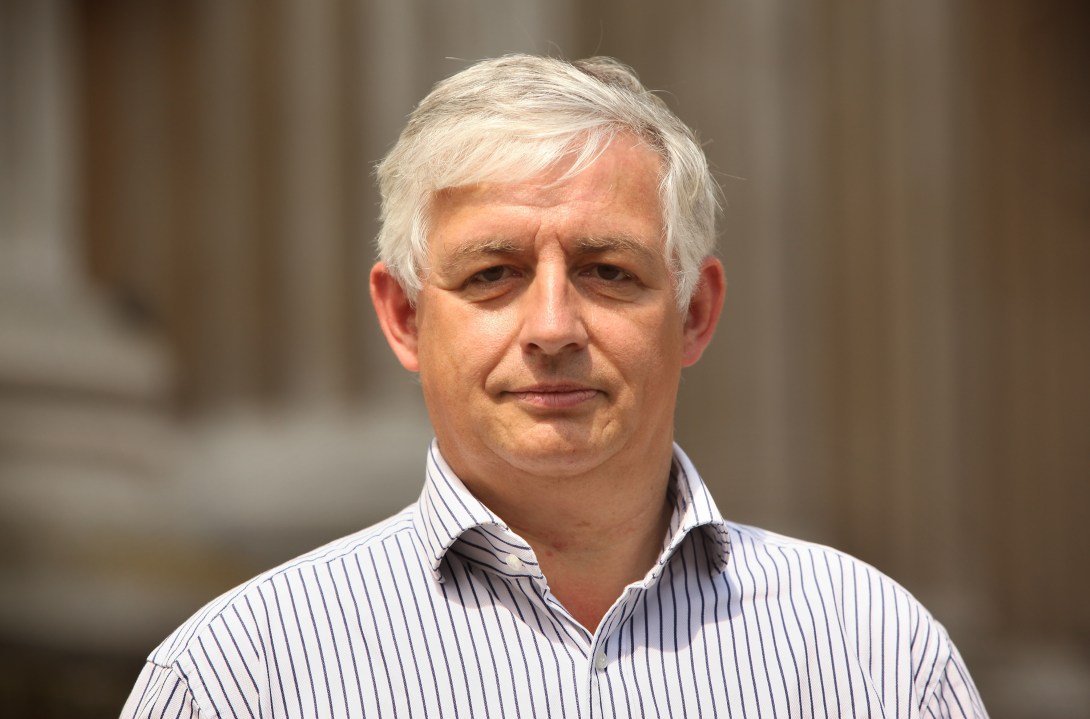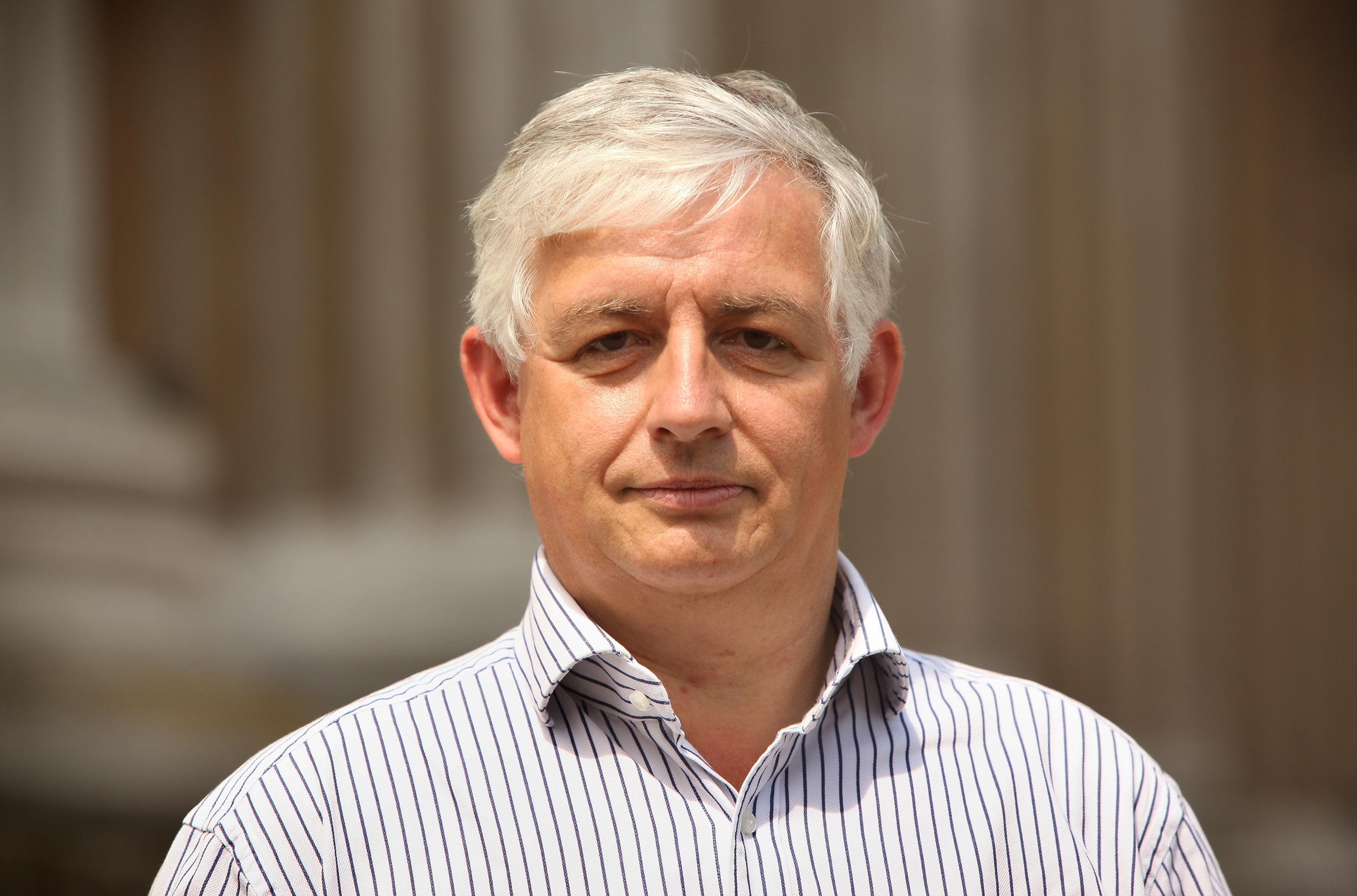It sounds like a dream job — being in charge of what is now regarded as the greatest classical music festival in the world. But most of us would quail at the challenge. Quite apart from needing enough musical imagination to come up with 75 nightly programmes, it must surely be a logistical nightmare, corralling 300 musical artists and 315 works into a two-month season? Roger Wright, director of the BBC Proms since 2008 (as well as Controller of BBC Radio 3), obviously relishes the task.
‘I don’t do sitting in the chair dreaming about what we might put on,’ says Wright. ‘Nor is every single thing my personal choice.’ Yet throughout this year’s programme there are dozens of what’s become the trademark Wright Concert: unlikely combinations of composers and performers, guaranteed to provoke but also tantalise.
How do you, and your concerts team, begin work? With a blank sheet of paper? Or a set of ideas? A preconceived plan?
‘There’s never a blank sheet,’ says Wright. ‘I can tell you what’s happening every night in 2014. I can tell you who will be performing most nights in 2015. And I can tell you some of the dates we’ve got booked for the big international orchestras in 2016.’ Wright works to a three-year schedule, ‘spinning plates in the air’ until that dread moment in late January when the Proms programme has to go to press and no more drastic changes can be made.
‘As more and more dates get filled in, the shape begins to emerge and you can be more directive,’ says Wright. Take, for instance, this year’s Polish theme, provoked by the centenary of Witold Lutoslawski’s birth in Warsaw in January 1913. ‘We didn’t set out for 2013 to have a Polish thread,’ Wright explains. ‘It would have been very easy to overlook Lutoslawski in a year that also celebrates the birth of Benjamin Britten, and of Wagner and Verdi 100 years earlier.’ But then only last year Wright discovered that the Warsaw Philharmonic had never played at the Proms. It was like setting a match to a well-laid fire. Wright knew of Lutoslawki’s connections with the Warsaw Philharmonic’s former chief conductor Andrzej Panufnik, also a composer. Why not invite the orchestra and ask them if they could include both Lutoslawski and Panufnik in their programme? A ‘festival theme’ began to emerge because Nigel Kennedy had already been booked (to play Vivaldi’s Four Seasons) and he lives partly in Poland and has established his own orchestra there.
It took a series of readjustments and manoeuvres to make it work as the Warsaw Philharmonic only had a couple of dates available and by the time the invitation was sent most of the concerts for 2013 were in place. ‘It was like 26-dimensional chess,’ says Wright. But now we have concerts where Lutoslawski will be played alongside works by Panufnik and Shostakovich, but also with Holst, with Purcell and Britten, and on the First Night next to Rachmaninov. This is precisely what makes a Wright Concert such an intriguing prospect: hearing The Planets just after listening to Lutoslawski’s 1988 piano concerto.
Wright’s email address must be one of the busiest in the music business, as he is constantly being approached by agents and promoters with suggestions and offers. ‘Most of my time is spent saying no to things,’ he says. But I suspect this is easy for Wright, who, in spite of his affable, breezy manner, has a razor-sharp instinct for what will work and what won’t. He’s absolutely not afraid to tell a top-line international orchestra that, no, they won’t be playing in the Proms next season, or the year after, because the repertoire they’ve offered is just not interesting enough. ‘That’s quite a shock for some orchestras to hear,’ he says, not a bit abashed. But ‘there’s very little point in an orchestra coming and doing Shostakovich 10 or The Planets’. What he looks for is ‘a connection; that the relationship on offer [between orchestra and work or orchestra and soloist] has a meaning’.
Much more difficult, he says, is knowing when it’s the right time to say yes, so that you don’t miss out on a rare opportunity for London audiences, and in particular the Proms audience (which this year still only has to pay £5 for a ticket), to hear a world-class musician performing one of the great classical works. Just imagine, for example, messing up the chance to have Mitsuko Uchida playing the Beethoven Piano Concerto No. 4 with the Bavarian Radio Symphony Orchestra on her first visit to the Proms for 20 years, simply because you’d already booked someone else to play the No. 4 in the same season.
What does he do if a clash of works occurs? He follows the rule first come, first served and asks the artist whether there is anything else they can offer. They’re usually very good, he insists, and don’t behave like prima donnas demanding, ‘Who got there first?’
Actually, what happened with Uchida was a combination of luck and judgment. Wright heard on the grapevine that the Bavarian Radio Symphony Orchestra would be in London at Proms time and that Uchida would be touring with them. ‘Hurrah!’ was his immediate response. ‘We’ll take whatever concerto she’s offering.’
Perhaps the single most striking feature of this year’s programme is that even if, like me, your knowledge of classical music is pretty average, you can discern in each and every concert a rationale. It’s not just music thrown together, nor are the programmes like any other you will find in London for the rest of the year. ‘That’s what turns the Proms into a festival,’ explains Wright. ‘Featured composers, featured artists. Musicians who will do more than one event. Unusual partnerships.’
There is a checklist that underlines the process, which Wright says is very little different from 100 years ago when Henry Wood was in charge. Apart from remembering musical anniversaries and creating an overall balance of programmes for the season, British music must be well represented. There should be plenty of British premières and new commissioned works. Audience development is important, he says, introducing different types of music and different groups of people to the orchestra in different ways; as well as making sure there are always enough of the core works. But Wright also is determinedly flexible, keeping the programme open until that uncompromising deadline in late January. The season is locked-down. ‘That’s an interesting moment,’ says Wright.







Comments